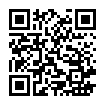Профессиональная удовлетворенность медиков в период пандемии (на материалах контент-анализа глубинных интервью)
Научная статья
Аннотация
Литература
Зинченко Ю. П., Салагай О. О., Шайгерова Л. А., Алмазова О. В., Долгих А. Г., Ваханцева О. В. Восприятие стресса различными категориями медицинского персонала во время первой волны пандемии COVID‑19 в России // Общественное здоровье. 2021. Т. 1, № 1. С. 65–89.
Нигамаева К., Дианов С. В Кремле высказались о запрете врачам комментировать коронавирус // Информационное агентство Ura.ru. 2020. 29 окт. Режим доступа: https://ura.news/news/1052456422.
Пастуро М. Красный. История цвета / пер. с фр. Нины Кулиш. М.: Новое литературное обозрение, 2019. 160 с.
Петриков С. С., Холмогорова А. Б., Суроегина А. Ю., Микита О. Ю., Рой А. П., Рахманина А. А. Профессиональное выгорание, симптомы эмоционального неблагополучия и дистресса у медицинских работников во время эпидемии COVID-19 // Консультативная психология и психотерапия. 2020. Т. 28, № 2 (108). С. 8–45.
Потребители устают от упоминаний коронавируса в рекламе // Исследование Mitto. 2020. 8 мая. Режим доступа: https://adindex.ru/ news/researches/2020/05/8/ 281782.phtml.
Профессиональные династии в российском обществе / Д. П. Исаев, Л. В. Клименко, И. В. Мостовая [и др.]. Ростов н/Д.: Фонд науки и образования, 2021. 182 с.
СМИ все меньше замечают коронавирус. Упоминаний о пандемии во время второй волны COVID-19 значительно меньше, чем во время первой // Ведомости. 2020. 19 окт. Режим доступа: https://www.vedomosti.ru/society/articles/2020/10/19/843826-zamechayut-koronavirus.
СМИ: в Туркмении введен запрет на слово «коронавирус». 2020. 31 марта. Режим доступа: https://www.bfm.ru/news/440240.
Janus E., Filar-Mierzwa K. Prestiż wybranych zawodów medycznych w opinii reprezentantów tych zawodów // Medycyna Pracy. 2019. Vol. 70 (5). P. 587–595. Doi: 10.13075/mp.5893.00863.
Kang L., Ma S., Chen M. et al. Impact on mental health and perceptions of psychological care among medical and nursing staff in Wuhan during the 2019 novel coronavirus disease outbreak: A cross-sectional study // Brain, Behavior, and Immunity. 2020. doi: 10.1016/ j.bbi.2020.03.028. Available at: https:// www. sciencedirect.com/science/article/pii/S088915 9120303482.
Krom I. L., Erugina M. V., Eremina M. G., Kovalev E. P., Bochkareva G. N., Grigoreva E. A., Vlasova M. V. The typology of social predictors as a research tool of studying personnel crisis in Russian health care: The publications review // Problemy sotsial'noi gigieny, zdravookhraneniia i istorii meditsiny. 2022. Vol. 30 (1). P. 148–152. Doi: 10.32687/0869-866X-2022-30-1-148-152.
Mohos A., Varga A., Markó-Kucsera M., Kalabay L., Torzsa P. A családorvoslás mint karrier. Orvostanhallgatók pályaválasztással kapcsolatos vélekedései és motivációi // Lege Artis Medicinae. 2019. Vol. 29 (12). P. 627–634. Doi: 10.33616/LAM.29.060.
Olsson C., Kalén S., Ponzer S. Sociological analysis of the medical field: Using Bourdieu to understand the processes preceding medical doctors’ specialty choice and the influence of perceived status and other forms of symbolic capital on their choices // Advances in Health Sciences Education. 2019. Vol. 24 (3). P. 443–457. Doi: 10.1007/s10459-018-09872-3.
Vyalykh N. A., Nor-Arevyan O. A., Posukhova O. Yu., Mosienko O. S., Cherevkova A. I. Methodological matrix for sociological study of social well-being of the professional medical community during a complex epidemiological situation // Turismo: Estudos & Práticas (UERN). 2021. Vol. 01. P. 1–12. Available at: http://geplat.com/rtep/index.php/tourism/article/view/875.

Поступила: 18.05.2022
Опубликована: 05.08.2022





